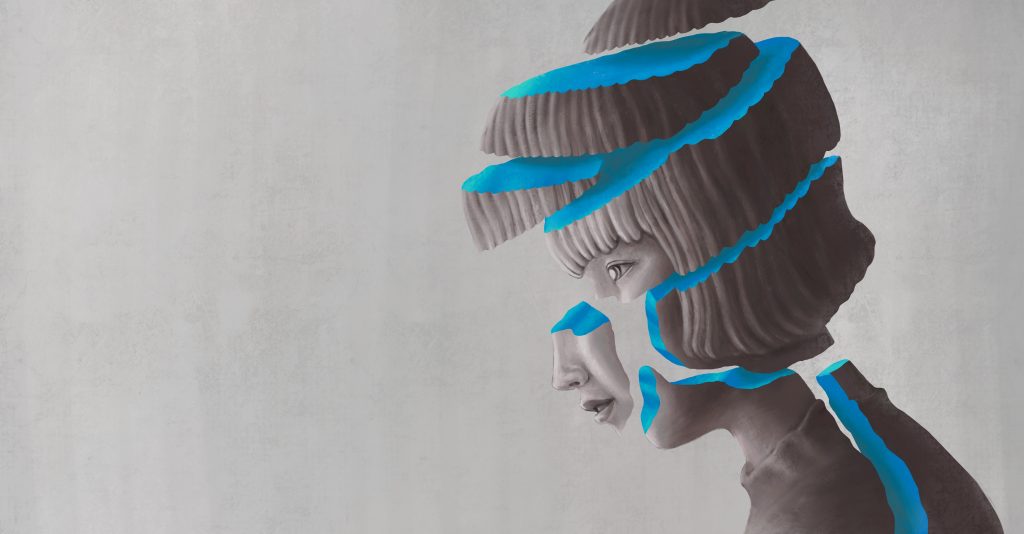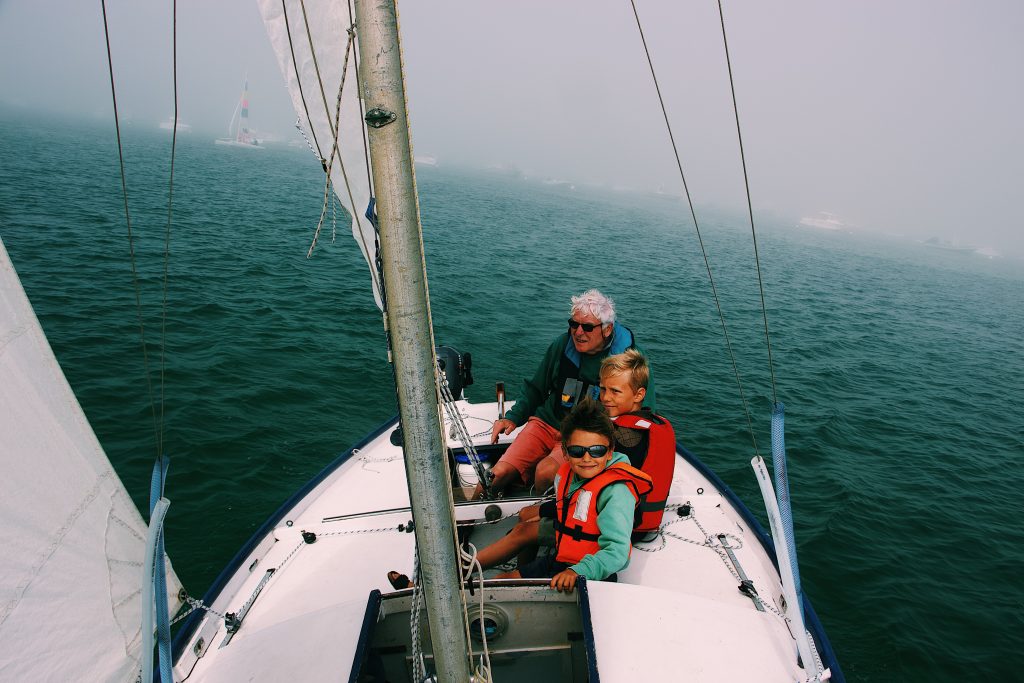What do we do with human frailty, especially when it shows up in “the competent ones”?

I was once sharing a room at a retreat with a high-functioning businesswoman who was holding a lot on her shoulders. Each evening, after our sessions ended, I’d hear her on the phone talking with her husband about their clients and business operations. Though she was on retreat, she couldn’t stop working because so many clients (and her husband) depended on her.
When she got off the phone one evening, I commented about how much capacity she had, and then I asked, “Do you ever get to fall apart? Do you ever get to just be weak and not be the capable one in the room? And do you have anyone in your life capable of holding you when you fall apart?”
She paused a moment, and I could see by the look on her face that the question had touched a deep and well-guarded place in her heart. In a voice that was quieter and more tender than I’d heard before, she admitted that she didn’t ever let herself fall apart and that she trusted nobody to be able to hold her if she did. When we dug a little deeper, she talked about how losing her mom at a young age had forced her to grow up too quickly and become “the competent one”. Now she didn’t know how to step out of that persona and was afraid of what would happen if she did.
I encounter a lot of people just like her in this work. People who hold space for others are very often “the competent ones” who hold other people but don’t let themselves fall apart. And, I admit, I have those same tendencies myself. I knew to ask her the question partly because I saw myself in her – I know what it feels like to try to hold the whole world together for the people who matter most to us.
Unfortunately, most people are uncomfortable with human frailty, and seeing other people fall apart makes them feel disoriented and uncertain about how to respond. That’s especially true when the person falling apart is a person they rely on to provide stability and strength so that they feel safe in the world. Those of us who are “the competent ones” know that it will cause discomfort and fear in other people if we falter, so we put a lot of pressure on ourselves to hold ourselves together. As a marriage counsellor once defined my role in my former marriage, we go a step beyond competent into the unhealthy zone of “the over-functioning ones”.
To live balanced and emotionally healthy lives, though, even strong ones need to be able to give themselves permission to be weak without needing to protect the people around them. But in order to do so, we need to find the right containers where we won’t have to worry about other people’s reactions to our weakness. (It’s when we take too much responsibility for other people’s reactivity that we begin to over-function.)
This past week, I’ve been revisiting the manuscript of a memoir that I had nearly ready for publication three years ago (but put on hold in order to write The Art of Holding Space). In the memoir, I share a story of a time when I had a fairly spectacular falling apart and it scared a lot of people, including myself.
I was in the hospital at the time (twenty-one years ago), trying to prolong my third pregnancy after a botched surgery put it into jeopardy. Because my doctor was afraid I’d go into labour too soon, I was given steroids to speed up the baby’s development. What I didn’t expect was the way that steroids can mess with a person’s mind.
For the first two weeks of my hospital stay, I was doing remarkably well and people were amazed at how calm and strong I was. I was so calm and strong, in fact, that people started coming to sit with me when they needed someone to talk to. Friends, nurses, other patients, nurses’ aides, even doctors – a surprising number of people dropped in to visit my room for no reason other than to sit and chat with me because they found me to be a peaceful and supportive presence. Many of them opened up to me about their fears and struggles. I believe it’s when I first learned I had the capacity to hold space for people (though I didn’t yet have the language).
But then one day, I fell apart – quite spectacularly. Nobody was certain whether it was caused by stress, steroids, or a combination of the two, but I had an unexpected psychotic break (that started with a panic attack) and for twenty-four hours, I was not in my right mind. To anyone watching, I was speaking complete gibberish (though it made sense to me and much of it still does – but that’s a story for the memoir). I was acting irrationally and completely out of character for the calm and strong person they’d come to assume I was.
Witnessing me that way was scary and baffling for the staff who had gotten to know me quite well during those two weeks. After the psychosis was over, they treated me very differently from how they had before. I felt like I’d become a pariah. None of the staff dropped in for casual conversations anymore and when they had to enter my room, they completed their tasks quickly, with little conversation, and left just as quickly. After a few days, a few began to trust me again and came back for conversations, but many never did.
It’s experiences like that that remind me how much discomfort we have with human frailty. Even health care workers, who see people under all kinds of stress, come unmoored in the presence of a psychotic break, especially in someone they deem to be competent and reliable. It’s a scary thing to witness and you desperately want to fix it so that the world feels safe again. But you don’t know what to do in response, so you get a little frozen and, more often than not, avoid it entirely. Just ask anyone who’s been through a tragedy and they will tell you that some of their friends and family had no idea how to show up, so they disappeared. It’s quite common, sadly, to lose friends when you are at your most broken.
The experience was shame-inducing, and even now, when I talk about it, I sometimes feel the grip of shame closing my throat. Despite the shame, though, I believe that it was good for me. It’s good to be reminded of our own human frailty now and then, to be brought face-to-face with our weakness. As a person who has built an identity around competence, I needed the reminder that even I can fall apart under the right set of circumstances – and that doesn’t mean that I stay broken or that the brokenness defines me. It helps me to stay humble and to get out of my ego, to accept the ebb and flow of life and to have more compassion for my own and other people’s brokenness. I’ve had a few broken-open moments since then (on a less spectacular scale) and know that I can survive them.
So… what do we do with human frailty? How do we let ourselves be frail when we’re feeling broken? And when we see brokenness in other people, how do we keep ourselves from running away?
For one thing, as I said to my roommate at that retreat, we need to find the right people who can hold us when we break. Not just anyone has the courage, and fortitude to stick around in the face of frailty, so we need to seek out those people who do. They need to be self-reflective, emotionally mature and compassionate people who don’t let their own fears and baggage get in the way. Many of us only ever find one or two people who have that kind of capacity and sometimes we have to hire someone (a therapist or coach, for example).
For another thing, we have to learn to hold ourselves in our own brokenness first so that we can hold other people in their brokenness. If we are afraid to be broken, if we shame ourselves when we are most frail, then we’ll treat other people the same way. In fact, if you want to know how well a person will be able to hold space for you, pay attention to the way they treat themselves when they fail or make a mistake. Do they take responsibility for it and treat themselves with kindness and forgiveness, or do they deflect blame and/or treat themselves harshly?
For a third thing, we have to let go of delusions and perfectionism. We can’t expect ourselves (or others) to be strong all of the time and we can’t expect the world to be safe and stable all of the time. That’s the kind of fantasy that’s sold to us by a capitalist system that wants us to believe if we just invest in the right botox or fancy car or training program or self-help book, we can create bubbles of protection and happiness around ourselves and we can always “be our best selves”. That’s all just smoke and mirrors though, and we deserve better.
We have to let go of the delusion and learn to practice radical acceptance of imperfection, flaws, weakness, and fumbling – in ourselves and in each other. When we see brokenness, we need to replace judgement with lovingkindness. When we do, we discover that acceptance is a much more peaceful, contented way of living. We put less pressure on ourselves and we offer forgiveness more easily.
Because every single one of us is going to fall apart sometimes – even the competent ones. And if we can hold that brokenness in ourselves, then we can hold it in each other.
*****
Want to learn more about how to hold space for yourself and others in times of brokenness? Join us for the Holding Space Foundation Program, starting the week of October 25th.

